Search Results
Showing results 1 to 20 of 69
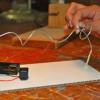
Circuit Game
Source Institutions
In this activity, learners build a game that tests their steadiness. Learners construct the game board by setting up an electrical circuit and a wand.
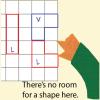
Fill It Up
Source Institutions
Players take turns adding shapes made of three squares to a grid. They try to fit their shapes on the grid in a way that blocks the other player.
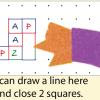
Dots to Squares
Source Institutions
As learners play this strategy game, they develop understanding of squares, area, and perimeter. On each turn, a player draws a line between two dots next to each other on the grid.
Stacking Dice
Source Institutions
In this math game, learners try to earn the most points by winning stacks of four dice. Learners practice number recognition and addition skills.
What's the Difference?
Source Institutions
In this sorting activity, learners play a game in which they try to identify the largest number of differences between two objects.
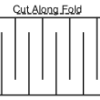
Great Openings: Slots, 35 Sense, and Hole In One
Source Institutions
These three short activities challenge groups to fit objects through paper and index cards: "Slots" presents the challenge for one learner to figure out which objects fit through a hole cut by another
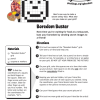
Boredom Buster
Source Institutions
In this Cyberchase activity, use grid coordinates to share secret pictures with a friend. Color squares of a grid to make a picture (like a smiley face) that you keep hidden from the other person.
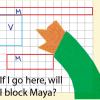
Twelve at a Time
Source Institutions
As learners play this game, they build skills in area, perimeter, multiples and factors. They take turns making rectangles with 12 squares on the grid.
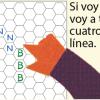
Cuatro en Línea
Source Institutions
¡Este juego de estrategia tiene reglas sencillas pero puede ser un reto! Los jugadores empiezan con una red de hexágonos vacía. En su turno cada jugador pone su inicial en un hexágono vacío.
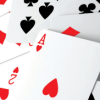
Odd Man Out
Source Institutions
In this math game (Page 14 of the Are You Game? PDF), learners determine the probability of getting an even versus an odd product using the numbers on a regular deck of cards.
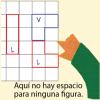
Rellénelo
Source Institutions
Los jugadores toman turnos para añadir figuras de tres cuadrados a la cuadrícula. Intenten encajar sus figuras en la cuadrícula de modo que bloquee al otro jugador.
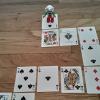
Coding Algorithms
Source Institutions
In this activity, learners will code an algorithm to make it through a maze.
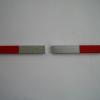
Magnet Races
Source Institutions
In this physics activity (page 4 of the PDF), learners will explore how similar magnetic poles repel one another. They will rely on linear induction to race magnets around a simple course.
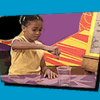
Penny Cup Game
Source Institutions
In this optics activity, learners conduct an experiment to find out why two eyes are better than one!
Frustrations with Fractions
Source Institutions
In this math activity, learners make a set of fraction cards to play a game that will help relieve their fraction frustrations.
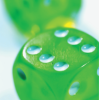
Race to the Top
Source Institutions
In this math game (Page 6 of the Are You Game? PDF), learners examine the probability of rolling sums from 0 to 12 with two dice. The first player to reach the finish line is the winner.

Power Up!
Source Institutions
In this online game, learners must purchase power plants for their city.

Gravity Launch
Source Institutions
In this online game, learners attempt to send a rocket ship to various targets. Learners can adjust the angle and thrust of the rocket before it is launched.
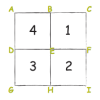
Solving Playground Network Problems
Source Institutions
In this activity, learners use cooperation and logical thinking to find solutions to network problems on the playground.

Dance Diagram
Source Institutions
Teams of learners use a series of stick figures made from pipe cleaners to model a dance routine. Then, they use this model to communicate to another learner who performs the dance routine.
